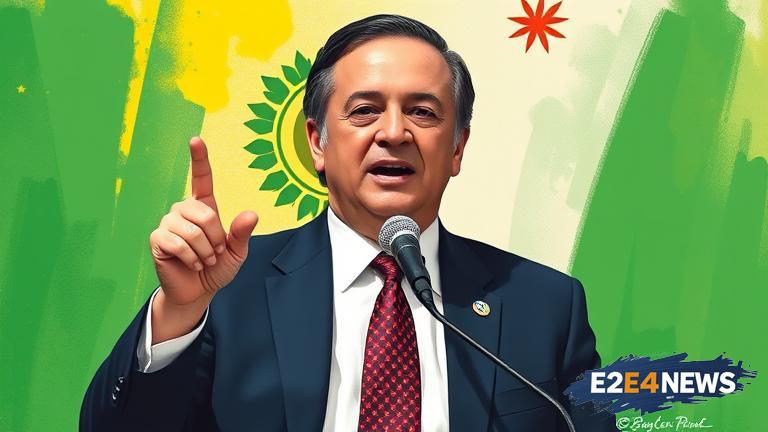In a recent announcement, a presidential candidate in Bolivia has pledged to revoke the country’s lithium deals with China and Russia. The candidate, who is running in the upcoming elections, stated that the current agreements are not in the best interests of Bolivia and its people. The deals in question involve the extraction and export of lithium, a key component in the production of electric vehicle batteries and other electronics. Bolivia is home to some of the world’s largest lithium reserves, and the country has been looking to capitalize on this resource to boost its economy. However, the candidate argues that the current agreements with China and Russia are unfair and do not provide sufficient benefits to Bolivia. The candidate has promised to renegotiate the deals and ensure that any future agreements prioritize the country’s national interests and environmental concerns. This move is seen as a significant shift in Bolivia’s foreign policy, as the country has traditionally been a key player in the region’s lithium trade. The candidate’s pledge has been met with mixed reactions, with some hailing it as a bold move to assert Bolivia’s sovereignty and others expressing concerns over the potential economic implications. The lithium industry is a significant contributor to Bolivia’s economy, and any changes to the current agreements could have far-reaching consequences. The candidate has also vowed to increase transparency and accountability in the country’s mining sector, which has been plagued by corruption and environmental concerns. The move is seen as an attempt to appeal to voters who are increasingly concerned about the environmental and social impact of the mining industry. Bolivia’s lithium reserves are estimated to be among the largest in the world, and the country has been looking to capitalize on this resource to boost its economy. However, the extraction and export of lithium have been linked to environmental concerns, including water pollution and soil degradation. The candidate’s pledge to prioritize environmental concerns is seen as a significant shift in the country’s approach to the mining industry. The move is also seen as an attempt to reduce Bolivia’s dependence on foreign investors and to increase the country’s control over its natural resources. The candidate has promised to work with local communities and indigenous groups to ensure that any future mining projects are carried out in a responsible and sustainable manner. The pledge has been met with support from some environmental groups, who have long been critical of the mining industry’s impact on the environment. However, others have expressed concerns over the potential economic implications of revoking the deals with China and Russia. The candidate’s move is seen as a significant challenge to the current government’s approach to the mining industry, which has been criticized for being too cozy with foreign investors. The pledge has also been seen as an attempt to appeal to voters who are increasingly concerned about corruption and transparency in the mining sector. The candidate has vowed to increase transparency and accountability in the country’s mining sector, which has been plagued by corruption and environmental concerns. The move is seen as an attempt to restore trust in the government’s ability to manage the country’s natural resources. The candidate’s pledge to revoke the lithium deals with China and Russia is seen as a significant shift in Bolivia’s foreign policy, and it remains to be seen how this move will play out in the upcoming elections.
